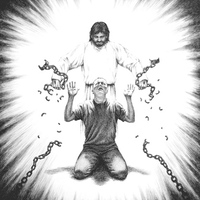Take Control
October 09, 2023
by Pastor Chuck Swindoll
Scriptures: 1 Samuel 31:1–13
Behind the great tragedy of Saul's life is a very interesting analogy—an analogy between Saul's death and Christ's death. At first glance we might say, "What in the world would we find common to both Saul and Christ?" Actually, there are six analogies worth noting.
First, Saul's death appeared to be the end of all national hope. When Saul died, many people must have thought, That's the end of Israel. The Philistines will surely conquer us now. In a similar way, Christ's death appeared to be the end of all national and spiritual hope.
Second, with Saul's death it seemed that the adversary had won the final victory. When Christ died, it seemed as though the Adversary of our souls had won. He must have strutted all over the gates of hell declaring, "The victory is mine. I am the conqueror. The Messiah is dead."
Third, Saul's death paved the way for an entirely new plan of operation and ushered in David's kingly line, which led to the Messiah. When Jesus Christ died, a whole new operation moved into action and set in motion our great salvation.
Fourth, Saul's death opened the opportunity for another who would not otherwise have been included in God's line of blessing, namely David. Christ's death graciously opened the opportunity of salvation's blessing to the Gentile who would never have otherwise been able to enter and come boldly to the throne of grace.
Fifth, Saul's death ended an era of dissatisfaction and failure. Christ's death ended an era of law and guilt, introducing an entirely new arrangement based on grace.
Sixth, and finally, Saul's death displayed the foolishness of man. Christ's death displayed, in human terms, the foolishness of God. Through the "foolishness" of God's plan, He brings to pass the incredible. He takes the preached word and He changes lives because of His Son's death.
It is quite possible the Lord is saying to some Sauls who are in the process of living out that kind of regrettable life, "Now is the time to stop." It is time to say, "Lord, don't change sides, just take over." We do, indeed, come before our Lord like sheep, not asking Him to take sides, but just to take control.

childrenshealthdefense.org








